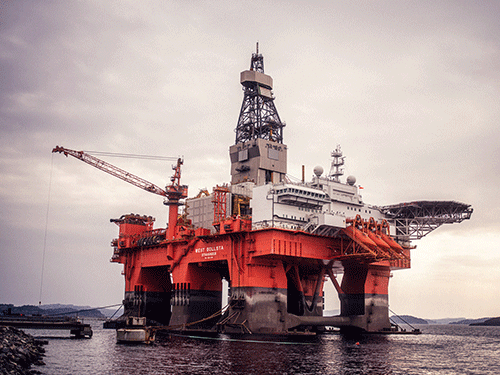Namibia’s 10% participating interest in recent oil discoveries by TotalEnergies and Shell, which is held through the National Petroleum Corporation (Namcor), is a carried interest.
This means the State is not required to provide billions of dollars for the exploration and development of the natural resources.
In fact, should Namibia want to hold a majority share in participating interest in exploration blocks, at 51% or more, the country will have to fork out hundreds of millions of dollars for the exploration programmes.
This, mines and energy minister Tom Alweendo cautioned, will become even more difficult in the current dispensation of a global de-funding of oil and gas exploration.
Alweendo issued a statement this week in response to Popular Democratic Movement (PDM) president McHenry Venaani who called on national oil agreements to be renegotiated.
Venaani urged for oil agreements to be penned in good faith and from a point of departure that respects the principle of oil reserves and proceeds benefitting Namibia’s current and future generations.
Alweendo responded, “Full financial and operational risk is carried by the international oil companies (IOCs) who are at risk of losing investments running into billions of dollars if operations fail.
The IOCs have the balance sheet and experience to either take the funding risk and/or to avoid significant loss of investment, the impact of which a country’s economy is not naturally designed to withstand.”
The energy minister further noted that significant funds invested by the IOCs would only be recovered after several years of production, if at all, while the State will start to receive royalty, tax and profits from the oil upon the commencement of production. The State is also able to ensure that its take from profit oil increases as oil price and production increases through contract mechanisms.
“The size of the funded participating/working interest that the IOCs take is further justified by the fact that they have proprietary technology, state-of-the-art equipment as well as superior operation and maintenance experience, which is the key defining factor between success and failure of operations especially in offshore operations,” Alweendo stated.
He further clarified that while IOCs bear all costs associated with exploration, the State continues to benefit from increased economic activity in the country, including goods and services supplied by the domestic private sector.
“Having the State as the majority owner and hence the funder of exploration and development activities will mean that the economic benefits of foreign investment to the local private sector will be significantly reduced,” Alweendo noted.
He added care should be exercised when administering the oil industry, noting that comparing Namibia to matured jurisdictions such as Norway need to be approached with caution.
Taxes, royalties and risk
In addition to the tax and royalties for the State, the IOCs will transfer technology to Namibian employees and entities as well as provide world-class training at no cost. This, Alweendo stated, will lead to the development of the State’s ability to take greater participation in the future development of its own resources.
He further expounded that the 90% participating interest the IOCs take also means in the event of a farmout, the new investor will have to fund a greater percentage of the exploration operations. A farmout is described as the assignment of part or all of an oil, natural gas, or mineral interest to a third party for development.
This, Alweendo continued, is in contrast to a scenario where the State already holds 51%, which would mean a new entrant would fund a significantly lower percentage of the work programme.
The minister further expanded that while the recent discoveries of light crude oil were made from exploratory drilling, the actual journey to production of oil is still far.
As such, he noted that government, together with joint venture partners, are still ascertaining the resource volume to establish whether it is of commercial value or not.
“Upon establishment of commerciality, development plans will then be articulated and on their basis final investment decisions made. Once the final investment decisions are made, the development of the field to construct the infrastructure required for the production will then commence. The journey from a discovery to appraisal, development and then production of first oil could take a minimum of five years depending on the requirements of the field,” the minister stated.
The recent Shell and TotalEnergies discoveries are located between 3 500 and 2 000km of water depth and at a distance of more than 250km from shore. It is estimated that each of the exploration wells cost more than N$1 billion to drill.
Venaani’s stance
Meanwhile, Venaani remains adamant that the 10% share negotiated by government represents a drop in the ocean of the real resource value and the PDM leader said this violates provisions in the Namibian constitution.
A statement issued yesterday by PDM noted that Venaani “is therefore left baffled when finding that no clear policy served as a guideline for the negotiators”.
Venaani drew reference to a landmark agreement in which the government of Papua New Guinea re-negotiated an additional 7% equity stake with future joint venture projects with Total and its joint venture partners, ExxonMobil and Oil Search, in May 2021.
“The additional 7% free carry will allow Kumul Petroleum, the state-owned petroleum company, to access technical data and jointly participate as a joint venture partner without having to fund its additional equity up front. In contrast, this agreement therefore dwarfs the equity stake secured by Namcor up to three times,” the PDM statement reads.
Caption
Offshore drilling… Shell has contracted Northern Ocean’s Deepsea Bollsta rig to carry out drilling offshore Namibia under a 12-month contract.
Photo: Contributed


